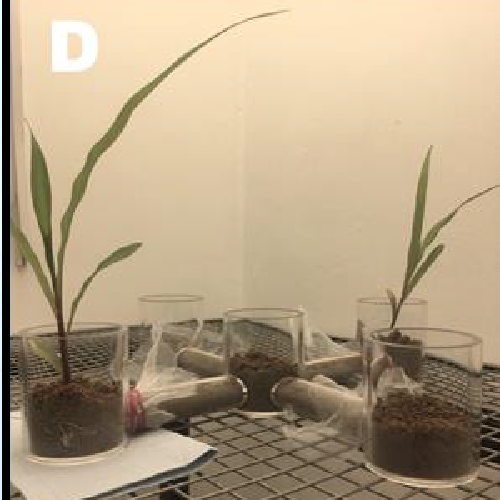What lurks beneath: unravelling the chemically-guided ecological interactions of Armillaria fungi, a devastating group of subterranean forest pathogens

Armillaria species, are devastating fungal root-rot pathogens that affect over 500 woody plant species globally. They are facultative necrotrophs that colonise and attack the cambium of living roots, necrotising the living tissue, and ultimately killing the tree before switching to a saprophytic phase to decay the dead tissue. Infection is established via rhizomorphs, exploratory organs comprising fungal hyphae aggregated in parallel that form extensive underground networks in forest soils in search of nutrients and new hosts to infect. Consequently, individuals of Armillaria are the largest terrestrial organisms on the planet, with recorded individuals covering areas >900 hectares and weighing 600 tons, with estimated ages of 2500 years. Despite the significant impacts of Armillaria species on global forestry, horticulture and agriculture, its ecological interactions and mechanisms of disease causation in natural environments are barely understood. Volatile and water-soluble chemical compounds play an important role in soil microbe-microbe and microbe-plant interactions and communication, and therefore the role that plant host or rhizosphere chemistry plays in host finding of Armillaria in the soil is an important unanswered question.
This multidisciplinary project will combine controlled bioassays (in agar plates and soil olfactometers) with chemical and transcriptome analysis, to characterise how Armillaria species respond to host rhizosphere and root chemicals to address the hypotheses that (1) Armillaria hyphae and rhizomorphs do not grow randomly, but use chemotaxis to locate host roots, and (2) rhizosphere and host chemistry influence Armillaria gene expression and infection dynamics in forest systems.
The PhD researcher will be based in the Molecular Ecology and Fisheries Genetics Lab (MEFGL) at Bangor University, but will spend approximately 12 months of the project at Rothamsted Research and will benefit from multidisciplinary training and supervision by the research teams of Prof. James McDonald (Bangor University), Dr. József Vuts (Rothamsted Research) and Sandra Denman (Forest Research).
The successful candidate will have, or soon expect to obtain, an upper second or first class undergraduate degree in Microbiology or a related discipline. A Masters-level degree and substantive laboratory experience is desirable, but not essential.
Please contact Prof. James McDonald (j.mcdonald@bangor.ac.uk), Bangor University, and Dr. Jozsef Vuts (jozsef.vuts@rothamsted.ac.uk), Rothamsted Research, for further information.
